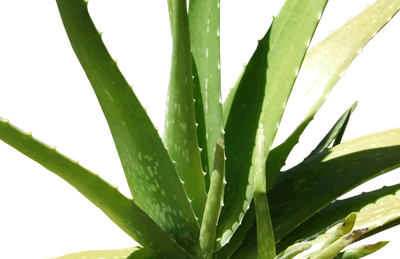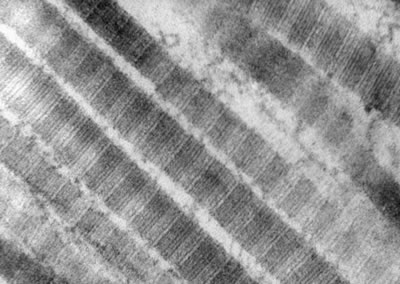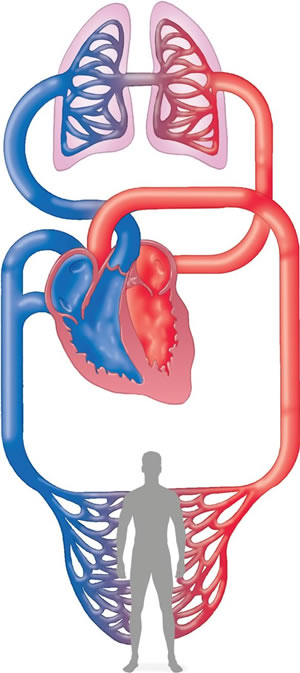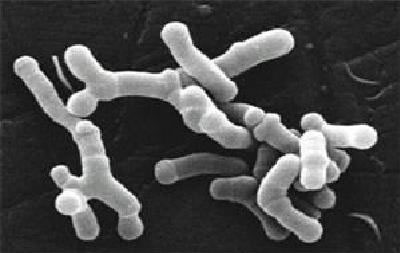When I first heard that people were drinking products containing Aloe Vera, I thought this all sounded a bit strange, because I was only aware of it being used in sun lotion, shampoo and other topical products. Though it seemed that people were now drinking it in the form of a natural juice, and it seemed there were some extraordinary claims being made of it’s health benefits.

Aloe Barbadensis Miller
If you aren’t familiar with the Aloe Vera plant and it’s various health properties, allow me to give you a quick overview. The Aloe plant family originate from North Africa. Like Cacti, it’s leaves are thick and filled with a gel which mostly consists of water. While there are over 350 types of Aloe plant, there is only one which seems to be granted with the special health properties, and consequently is one of the most cultivated natural health crops in the world. This is Aloe Barbadensis Miller, most commonly referred to as Aloe Vera. It’s health properties are mostly attributed to something called Aloe-Polysaccharides, which can only be found in Aloe Vera. It is believed to have been used for medicinal purposes for thousands of years. The Ancient Egyptians were one of the ancient civilizations who recognized its healing power.
As a fan of all things naturally healthy, I decided to explore this new world of Aloe Vera Juices and find out if some of the extraordinary health claims were true. I decided to share my findings with you. If you haven’t heard of this before, I suggest reading on.
Aloe Vera is well known for it’s ability to heal burns to the skin, though it’s ingredients have so many other health benefits. It seems that particular ingredients within the plant, were responsible for alleviating a wide range of completely different health problems.
Health benefits
Aloe Vera has been studied by botanists and medical researchers for many years. While there is a considerable amount of anecdotal evidence to support the claims of Aloe’s health benefits, it is reassuring to know that clinical trials have verified the plants health enhancing properties. Some of the most advanced research into the Aloe Vera has been carried out by researchers like Dr Ivan Danhof and Dr Peter Atherton.
According to Dr Ivan Danhof, who has studied the medicinal effects of Aloe Vera for over 30 years and has produced 80 scientific research papers, Aloe Vera is being used to help deal with the effects of diabetes, asthma, epilepsy, osteoarthritis, different types of digestive problems, ulcers, gastritis, colitis and constipation, and reduce the levels of cholesterol and triglycerides, and assist better blood circulation [1].
The claims of treating such a wide range of different health problems seems extraordinary. I decided to research Aloe’s health benefits, and share my findings with you. I have listed some of the most impressive benefits below:
• Youthful skin (feeding the Basal cells, & increasing Collagen and Elastin)

When skin cells are first produced deep within the epidermis, they are alive cells. However, by the time they reach the surface of the skin, which normally takes 21 to 28 days, they are small and no longer alive. These thin flakes of keratin eventually fall off the surface of the body [2].
Aloe Vera Gel provides the essential nutrition to feed the basal cells. This enables the skin to remain healthy and enables it to perform its vital functions more efficiently [2].

Collagen fibres
Aloe Vera also increases the activity of specialized cells found in the skin, called fibroblasts. Scientific research has shown that the cell division of the fibroblasts is accelerated to 3 times faster than normal under the influence of Aloe Vera (which is also why wounds heal in one third of the time in which they normally would) [5,6].
These cells produce fibres such as elastin and collagen. They give the skin it’s structure making it look plump and elastic. The more collagen and elastin your skin has, the younger your skin will look. The ability of the Aloe to feed the basal cells, also makes the skin look better [2].
Acne and Eczema
There is also mounting evidence of Aloe Vera juice’s ability to successfully treat both Acne and Eczema. In some cases, the most severe Eczema has been completely cured by using a combination of topical Aloe Vera products and drinking the Aloe Vera juice. [more info and evidence coming soon]
• Lowers cholesterol and improves circulation

Clinical trials have proven that beta sitosterol (a plant sterol found in Aloe Vera) to be effective at reducing high levels of cholesterol and triglycerides [3]. Aloe Vera also helps dilate the capillaries, thereby improving circulation [4].
Dr Ivan Danhof states that Aloe Vera helps normalize blood sugar levels, while having a beneficial effect on the liver and reduces the chance of suffering from cardiovascular problems. When ingested, Aloe Vera improves the quality of the blood and helps rebalance the blood chemistry in a way that lowers cholesterol and total triglycerides in people with elevated levels [1].
By regulating blood pressure, improving circulation, lowering cholesterol, making blood less sticky, Aloe Vera juice contains the properties to help lower the risk of heart disease.

• Oxygenates the blood (improving health and physical performance)
Trials have also proven Aloe Vera to oxygenate the blood, by greatly multiplying the oxygen transportation and diffusion capabilities of the red blood cells [3]. Increased oxygen levels in the blood, not only promote better health but also improve physical performance. This is because a number of different polymers found inside Aloe Vera gel work synergistically to increase the blood’s oxygen carrying capacity [12].
• Modulates the Immune system
According to Dr Peter Atherton, the Aloe-Polysaccharides of Aloe Vera are known to have an affect on the human cytokine system. These are the chemical messages of the immune system. This serves to balance the immune system optimizing it’s function. Therefore, the Aloe-Polysaccharides can be referred to as immunomodulators. In the US, the Aloe-Polysaccharides have been extracted from Aloe Vera and made into a drug [2].
• Cancer killing properties
In fact, an animal study involving the use of Acemannan, which is found within Aloe Vera, was found to have anti-cancer properties. The study found that the Acemannan accelerated the rate in which cancerous cells were dissolved, improving recovery times and assisting in the recovery from aggressive forms of cancer treatment [9].
Another study found the Acemannan to increase a cell’s production of Nitric Oxide, a chemical which is known in the medical world to have cancer killing properties [10].
• Effects the Musculoskeletal system
Certain substances found in Aloe Vera, such as the salicylic and plant sterols have the power to soothe muscles. These substances also maintain healthy joints, mobility and flexibility [2].
• Anti-inflammatory
Aloe Vera juice has also proven to have anti-inflammatory qualities. Drinking Aloe consistently for as little as two weeks, can reduce inflammation throughout the body [11].
• Effect on the gut & gut flora

Gut Flora
Aloe Vera juice is very beneficial for the functioning of the bowels. It causes a smooth and efficient transit of contents resulting in a softer, bulkier stool, making it easier to pass.
Aloe Vera serves as a neutral “balancer” in many areas of the body, and especially inside the gut, where it regulates the various bacteria and yeasts that inhabit it.

Aloe Vera gel has a positive affect on the large intestine
If you suffer from excess yeast in the gut, regular ingestion of Aloe Vera gel would tend to reduce this overgrowth. The same can be said of the more unfriendly bacteria that in certain conditions, can accumulate within the gut [2].
• Healthy digestion & Effective nutrient absorption
There is now clear, clinical evidence that shows that by drinking Aloe Vera Gel the bowel is able to absorb nutrients more efficiently. In fact, this is most noticeable with the absorption of protein, though many other substances are also much better absorbed due to Aloe Vera gel consumption. A healthy digestive tract ensures that nutrients from the food we eat are absorbed into the bloodstream [2].
• Adaptogenic properties
The interesting thing about taking aloe internally is that it has adaptogenic properties. Adaptogens are herbs that appear to increase the body’s ability to adapt to stress and changing situations. It boosts the body’s own ability to heal itself from a spectrum of completely different ailments. For example, it can help with either constipation or diarrhoea, both are very different digestive problems. It’s been a great remedy for people with problems such as arthritis, irritable bowel syndrome as well as acid reflux. It may also have a positive effect on asthma [7].
Aloe is also a vermifuge, which means it helps to rid the body of intestinal worms [8].
• A source of Minerals
Aloe Vera juice contains a number of important minerals. Among them are calcium, sodium, potassium, iron, chromium, magnesium, manganese, copper and zinc. Your body needs a spectrum of different minerals to function properly. Aloe contains a large range of minerals, because it tends to grow in areas where soils are rich in these minerals and its roots are able to absorb and deliver them to us in a very available form [2].
• A source of Vitamins
Aloe Vera juice contains a wide range of vitamins. Among these are trace elements of vitamin B12.
It’s main function is to facilitate the normal functioning of the brain and nervous system, and is used in the formation of blood.
This vitamin is commonly found in most animal derived foods like red meat, fish, eggs and dairy products. It is rarely found in plants. Aloe Vera juice also contains other B-group vitamins, along with vitamin A and vitamin C. Unfortunately, vitamins cannot be stored by the body, so it is important to keep consuming them on a regular basis [2].
• Amino acids
Aloe Vera juice contains 19 of the 21 ‘human’ amino acids. Amino acids are the building blocks of our protein cells. The human body can only produce 12 aminos. The other 9 must be supplied from food on a regular basis, and it is for this reason they are referred to as the Essential Amino Acids. Your body cannot make any of them. Failure to obtain enough of even one of these, will result in degradation of the body’s proteins, which mostly make up your body’s muscle, along with other tissues. Aloe Vera juice contains all of the essential aminos, except ‘Histidine’. Amino acids also allow your complex enzyme systems to function properly [2,7]. The 8 essential amino acids found in Aloe Vera gel are:
- isoleucine
- leucine
- lysine
- methionine
- phenylalanine
- threonine
- tryptophan
- valine
Universal health
Despite researching Aloe Vera juice’s health benefits for some time now, I feel that my work is by no means complete on this subject. It seems the more I look, the more I find. It is because of this, that I will continue to add new information as my work continues. It seems that Aloe Vera juice is not just an ideal natural health supplement, but it also seems to have the ability to heal an impressively diverse range of illnesses, and I anticipate that this list will continue to grow.
Although my research is not complete, I feel that I can safely conclude that it has earned it’s unofficial name, The Miracle plant.
Thank you for reading, and I really would appreciate giving me your comments below
![]()
Toby Barnes
Source
- 1. Dr Ivan E Danhof Ph.D., M.D. (medicalaloe.com)
- 2. “Top 10 reasons to drink Aloe Vera gel” by Dr Peter Atherton
- 3. Elsevier “Journal of Ethnopharmacology (1999), Vol. 68, pages 3-37” by T Reynolds and AC Dweck
- 4. Steven Foster, member of the Herbs for Health Editorial Advisory Board. Quoting research of University of Texas in Galveston
- 5. Danhof, I.E., McAnally, B.H. (1983), Stabilized Aloe Vera: Effect on Human Skin Cells. Drug. Cosmet. Ind. 133, 52-106
- 6. Winters, W.D., Benavides, R., Clouse, W.J. (1981), Effects of Aloe Extracts on Human Normal and Tumor Cells In Vitro. Eco. Bot. 35: 89-95.
- 7. “Aloe Vera: Nature’s Silent Healer” by Alasdair Barcroft, Audun Myskja and Tom Reynolds
- 8. “A Drug for all Seasons: Medical and Pharmacological History of Aloe” by John S Haller Ph.D.
- 9. “Journal of the American Animal Hospital Association” September 1st 1995, Volume 31 No.5, Pages 439-447
- 10. K. Karaca, J.M. Sharma, R. Nordgren “International Journal of Immunopharmacology” Volume 17, Issue 3, March 1995, Pages 183–188
- 11. “Anti-inflammatory and wound healing activity of a growth substance in Aloe Vera” by RH Davis, et al. JAPMA February 1st 1994, Volume 84 No.2, Pages 77-81
- 12. “Survival in a rat model of lethal hemorrhagic shock…” by Macias CA, et al. Department of Critical Care Medicine and Surgery, University of Pittsburgh, 15261, USA (ncbi.nlm.nih.gov)
Post: aloe-vera-juice | Version 2.2


